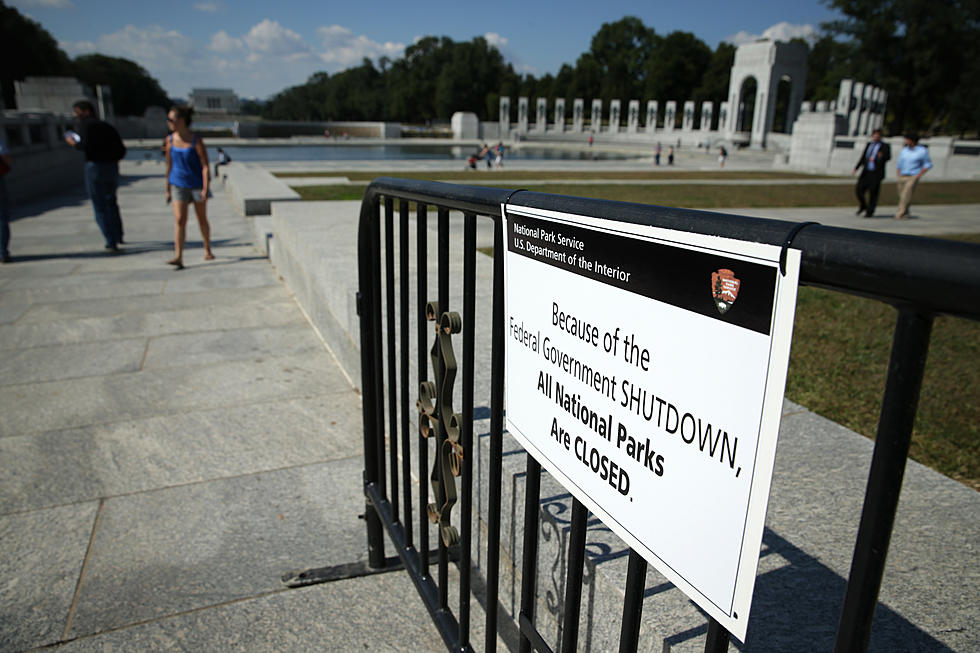
Government Shutdown January 2018: What’s Open and Closed
The federal government shut down this morning (Saturday) at 12:01 am. Most federal employees will be furloughed.There are questions about the IRS, taxes, medicaid, national parks and more.
Here’s what we know so far about how the shutdown will affect various agencies and services. Source: Vox & CNBC
National Parks, Museums, Libraries, and Zoo
- During the 2013 shutdown, all 401 national parks were closed, but this time parks with entrance fees will remain open, a senior administration official said on a call with reporters Friday night.
- Smithsonian museums will be closed beginning Monday, but will be open over the weekend, as will the National Zoo. (In 2013, the zoo’s beloved panda cam was turned off.)
- The Library of Congress will be closed beginning Saturday.
Health agencies
- The National Institutes of Health will stop accepting new patients for clinical research and answering hotline calls about medical questions. Patients currently in NIH hospitals will still be cared for as the agency furloughs 77 percent of its staff.
- The Food and Drug Administration will not be able to conduct non-essential routine inspections or certain lab research; 42 percent of its workers will be furloughed.
- The Centers for Disease Control and Prevention will have a significantly reduced capacity to respond to outbreak investigations, process lab samples, and maintain their 24/7 emergency operations center, but they will continue their work on flu surveillance, the administration official said Friday. All but 37 percent of the agency’s staff will be furloughed.
Regulatory agencies
- Certain financial regulators, including the Securities and Exchange Commission and the US Commodity Future Trading Commission, will be sending the majority of its staff home. While corporations will still be able to file documents, nobody will be around to look at them.
- The Environmental Protection Agency said in a letter to staff Friday that their operations will continue as normal through next week, even though its shutdown contingency plan calls for furloughing about 95 percent of employees.
- The Consumer Financial Protection Bureau, which is not funded through the annual appropriations process, will remain open.
Veterans hospitals
- Hospitals operated by the Department of Veterans Affairs are unaffected by the shutdown.
Social Security, Medicare, and Medicaid
- Social Security: As a “program written into law,” the Social Security Administration will ensure checks keep going out. However, the agency might not have (and, in the past, has not had) enough staff to do things like answer phone calls or help recipients who need to change addresses.
- Medicare: Medicare is unaffected, as is Medicaid.
The courts
- According to a memo from the director of the administrative office of the US courts, James C. Duff, the judiciary will not shut down, and all employees will be expected to return to work as normal on Monday.
- The judiciary has enough money to continue paid operations for approximately the next three weeks, or until February 9, 2018.
- This is a noted contrast to the 2013 shutdown, when the federal courts were already limping along on limited funds. That time, the judiciary ended up experiencing broad disruptions, including delays in bankruptcy and Social Security cases, condensed criminal calendars, cuts in building maintenance, and uncertainty over juror payments.
The military
- The military falls under the “essential to national security” umbrella, along with border patrol agents and TSA screeners, and are therefore among those who are “excepted.”
- Active-duty troops worked through the 2013 budget stand off, but not without setbacks. That shutdown halted payments to families of fallen troops, shutteredregional veterans facilities, and canceled some drills for the National Guard and reserve troops.
The US Postal Service
Not affected because it is funded by independent sources of revenue.
Air traffic control
The air traffic controllers responsible for making sure planes land and take off safely, as well as TSA agents, will continue work as normal.
Federal prisons and border control
These employees also fall under the “public safety” category, and workers are exempt from furloughs as a result.
Washington, DC
During the 2013 shutdown, then-mayor Vincent C. Gray was forced to dip into budget reserves and designate every one of the city’s employees as “essential” in order to keep the city up and running. Since then, however, Congress has given DC more budget autonomy, insulating it from the effects of a shutdown by allowing it to spend more of its budget as it sees fit.
“Our budget has a degree of separation from the Congress that it did not have at the time of the last shutdown,” Donahue told the Washington Post in response to the threat of a shutdown this past April. “We believe, in the event of a shutdown, that there will be no effect on city services, nor will we need to take the extraordinary step of declaring all employees essential.”
Only federal landmarks and smaller, federally-controlled parks in the city will go without trash collection. In 2013, the district ended up picking up the slack after an accumulation of garbage and rats prompted a rapid response.

